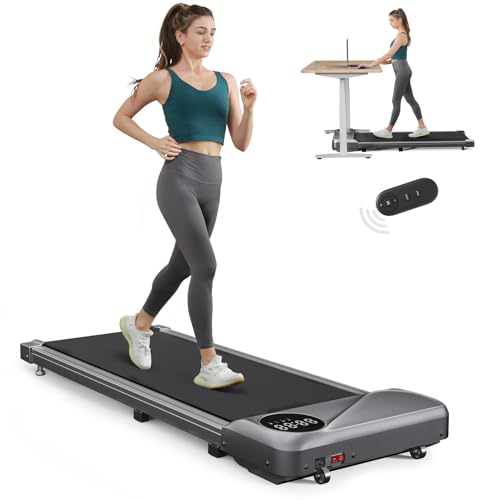The Secret Secrets Of Treadmill Machine
The Treadmill Machine: An Educational Guide to Your Fitness Journey
The treadmill machine has actually become an important tool in contemporary physical fitness regimes. Whether one is an experienced athlete or a newbie trying to get into shape, a treadmill provides a practical and efficient method to achieve fitness objectives. This short article will explore the different aspects of treadmill machines, their advantages, different types available, and standards for reliable use.
Advantages of Using a Treadmill
Treadmills provide many physical and psychological health advantages that add to total wellness. Some essential advantages consist of:
- Cardiovascular Health: Regular usage of a treadmill helps in enhancing heart health by strengthening the heart muscles and enhancing circulation.
- Weight Loss: By engaging in consistent cardiovascular workouts, individuals can burn substantial calories, assisting in weight-loss and management.
- Joint-Friendly Exercise: Treadmills offer a controlled environment that enables users to change speeds and inclines, making it simpler on the joints than running on hard surfaces.
- Convenience: Treadmills are specifically useful for those who live in areas with unfavorable climate condition, as they can be utilized indoors year-round.
- Personalized Workouts: Many modern-day treadmills come geared up with programs and features that allow users to customize their exercises for differing strength levels.
Health Benefits Overview
Benefit
Description
Cardiovascular Improvement
Enhances the heart, improving general blood circulation and endurance.
Weight Management
Reliable calorie burning leading to weight-loss.
Injury Prevention
Decreased danger of injury due to adjustable surfaces and regulated environments.
Inspiration and Consistency
Supplies an indoor option that encourages regular exercise despite climate condition.
Improved Mood
Routine workout adds to the release of endorphins, boosting mental wellness.
Types of Treadmill Machines
While treadmills may appear simple, different types cater to different requirements and choices. Here are the main categories:
Manual Treadmills: These need no power and are moved by the user's effort. They frequently take up less space and are quieter however can present a steeper knowing curve for newbies.
Electric or Motorized Treadmills: The most common type, they feature automated programs for speed and slope. They are usually more flexible but need electrical energy to run.
Folding Treadmills: Designed for those with restricted area, folding treadmills can be collapsed and saved away when not in usage, making them perfect for studio apartments.
Incline Treadmills: These machines provide the ability to raise the incline, mimicing hill runs for a more reliable exercise.
Industrial Treadmills: Built for heavy use, these machines are generally discovered in health clubs and health clubs and include a variety of features and resilience.
Contrast of Treadmill Types
Type
Source of power
Best For
Area Considerations
Manual
None
Novices, budget-conscious users
Low
Electric
Plug-in
Varied intensity workouts
Medium to High
Folding
Plug-in
Restricted space users
Low
Incline
Plug-in
Intense cardio and strength
Medium to High
Business
Plug-in
Frequent gym use
High
Tips for Effective Treadmill Use
To take full advantage of the advantages of a treadmill regimen, here are numerous suggestions to consider:
- Warm-Up: Start every exercise with a 5-10 minute warm-up at a sluggish speed to prepare the body.
- Posture: Maintain an upright posture, keeping shoulders back and direct to avoid stress and injury.
- Period Training: Incorporate numerous speeds during workouts (high-interval training) to enhance cardiovascular fitness and burn calories.
- Usage Inclines: To further improve exercises, add slope options to mimic hill running, which builds strength in the legs.
- Stay Hydrated: Keep a water bottle close by, guaranteeing to consume in the past, throughout, and after exercises to remain hydrated.
Recommended Treadmill Workouts
- Novice's Walk: Start at a moderate pace for 20-30 minutes, gradually including speed as comfort boosts.
- Hill Intervals: Alternate between slope and flat surfaces, running uphill for 1 minute followed by walking for 2 minutes.
- Long-Distance Run: Target a consistent rate for an extended period (40-60 minutes), concentrating on endurance.
- Speed Training: Change speeds every minute, beginning with a light jog to short bursts of sprinting to enhance speed and cardiovascular health.
Frequently asked questions
Q1: How typically should I utilize a treadmill for reliable outcomes?
A1: It is normally suggested to use a treadmill a minimum of 3 times weekly for 30-60 minutes to see considerable outcomes.
Q2: Can I lose weight utilizing a treadmill?
A2: Yes, with a combination of routine exercise, a well balanced diet plan, and part control, using a treadmill can contribute considerably to weight reduction.
Q3: Do I need to warm-up before using the treadmill?
A3: Yes, warming up is necessary to prepare your body, minimize the danger of injury, and improve exercise performance.
Q4: Is running on a treadmill as reliable as running outdoors?
A4: Both have advantages, however a treadmill enables regulated environments, avoiding weather-related interruptions, and might have less impact on the joints.
Q5: Can a treadmill aid with bodybuilding?
A5: While mostly a cardiovascular tool, adjusting slopes can help engage and reinforce particular leg muscles.
Treadmill machines are versatile and can be an essential part of a physical fitness journey. By understanding the various types, benefits, and effective use strategies, individuals can use the complete capacity of this devices. Whether going for improved Treadmill For Home , weight management, or enhanced mental well-being, a treadmill works as a trustworthy companion on the roadway to fitness.
